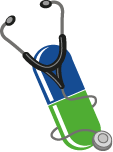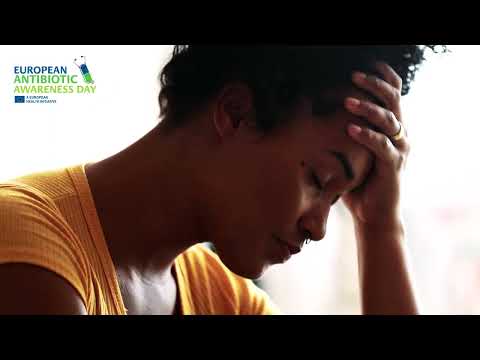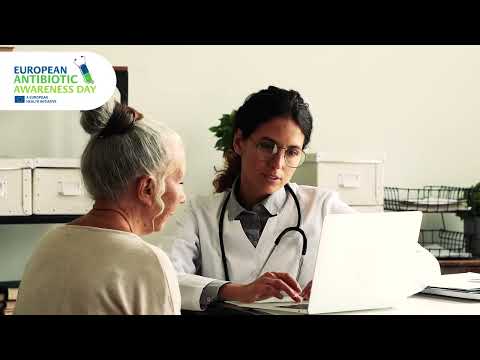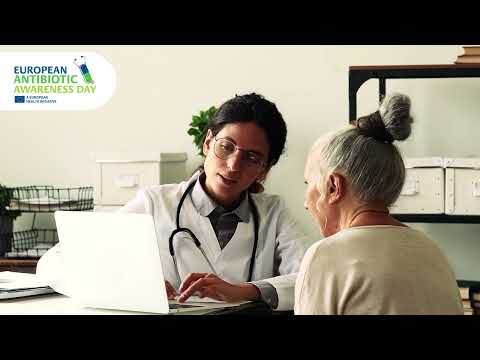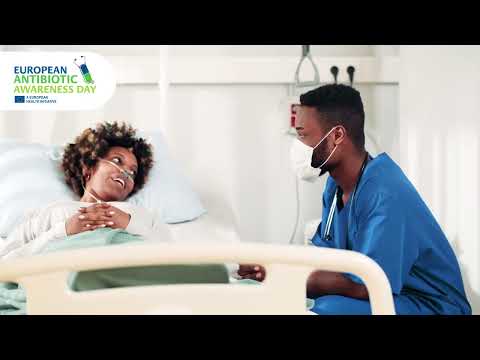Myth-busting videos
A series of videos addressing common misconceptions about antibiotics and antimicrobial resistance.
Are antibiotics effective against COVID-19, the common cold, or the flu?
FALSE. Antibiotics are effective against bacteria, but they cannot kill viruses.
COVID-19 is a disease caused by a virus, and so are the common cold and the flu. Antibiotics cannot help you recover from a viral infection.
Up to 80% of the winter illnesses affecting your nose, ears, throat and lungs are caused by viruses, and not by bacteria.
Using antibiotics, causes bacteria to become antibiotic-resistant. And taking antibiotics, often has various unpleasant side effects such as diarrhoea, nausea or skin rashes.
Only take antibiotics on the advice of your doctor, in the prescribed dose and for the recommended duration.
If you are sick, can you take any antibiotics you have at home?
FALSE. You should never stock antibiotics at home or use leftovers from previous treatments.
Or take antibiotics without seeking the advice of a medical doctor.
For most bacterial infections, a doctor usually prescribes a course of antibiotics for a limited number of days. This can differ depending on the infection and the antibiotic.
Always take the full course of antibiotics with the correct doses and for the number of days as prescribed by your doctor!
If you self-medicate, you may choose the wrong antibiotic, use an incorrect dose, or even take antibiotics when they are not necessary. Self-medication contributes to antibiotic resistance.
If you’ve received more antibiotic tablets than you were prescribed, ask your pharmacist about how to dispose of the leftovers.
Only take antibiotics on the advice of your doctor, in the prescribed dose and for the recommended duration.
If I feel better after 2-3 days, can I stop taking antibiotics?
FALSE. After taking an antibiotic prescribed to treat a bacterial infection, you should start feeling better in a few days. This is because the antibiotic starts working, killing the bacteria responsible for the infection.
If you stop taking the antibiotic before the end of the prescribed course, or if you take incorrect dose or at the wrong intervals, the remaining bacteria may develop resistance to the antibiotic.
Only take antibiotics on the advice of your doctor, in the prescribed dose and for the recommended duration!
If I am in good health, can I become resistant to antibiotics?
FALSE. Bacteria, become antibiotic-resistant. Not humans. When exposed to antibiotics, bacteria can develop antibiotic resistance.
This makes infections more difficult to treat. It also increases the risk of spreading the infection, becoming severely ill, or even dying.
Even healthy people, or those who rarely take antibiotics, can suffer complications if they get, for example, a skin infection or a urinary tract infection with antibiotic-resistant bacteria.
Antibiotic resistance can affect any person at any stage of life.
Is misuse of antibiotics more frequent in animals than in humans?
FALSE. Antibiotics are used to treat bacterial infections in humans, as well as food-producing animals, and companion animals.
It is the bacteria hosted by humans and animals, but not the humans and animals themselves, that become antibiotic-resistant.
Some bacteria may infect both humans and animals, and they can be transmitted between one another. Infections with antibiotic-resistant bacteria, in humans and animals, are more difficult to treat.
These infections lead to increased mortality, longer hospital stays and therefore, increased financial costs.
Everyone has a role to play in keeping antibiotics working, including veterinarians, farmers, healthcare professionals, patients, governmental and non-governmental organisations.
